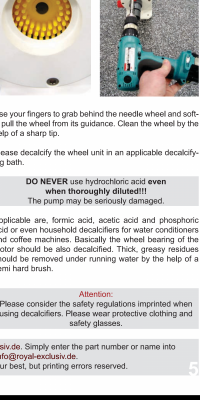When doing this 1/10 Muriatic to water mix,
Do you still need to add baking soda to the mixture to neutralize the acid after use like when you use it to clean rocks?
Do you still need to add baking soda to the mixture to neutralize the acid after use like when you use it to clean rocks?




















